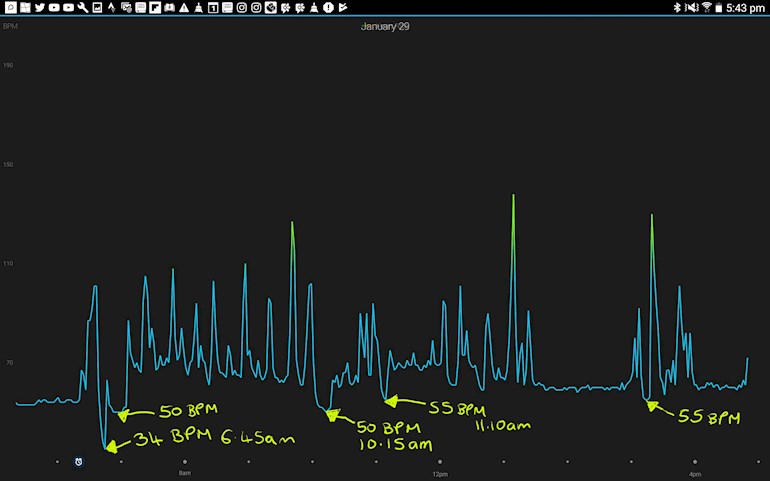I started C25k in August last year having done no exercise other than a bit of cycling to get about in my teens. I run about 3 times a week, nothing very impressive, a maximum of 9 miles for my longest runs, but usually a modest 4 miles. I am no athlete!
Recently I was given a Garmin watch for my birthday in the first week of January, and have worn it most of the time ever since. It tells me I sleep well, I run slowly and I get lost regularly...this is fairly accurate. It gives me pretty, coloured graphs that tells me all about my runs, it helps me with intervals and encourages me to go a little easier on myself when I've been slogging away unnecessarily. It also monitors my resting heart rate. I wonder how accurate that is? This morning as I sat down to eat my breakfast it recorded a low of 34 bpm. It has gone as low as 42 bpm, or thereabouts on a good few occasions previously. It tells me my average resting heart rate varies from day to day with the lowest at 45 bpm and the highest at 75 bpm.
The only reason I ask is because I had difficulties a few years back with intermittent irregular heartbeat patterns. I'd be left incapable of moving, sitting up or speaking on the worst occasions, sometimes for quite a few hours. I'd even be woken at night by it and feel dizzy and disorientated while lying in bed. I had 2 ECG's done and a 24 hour monitor, which picked up nothing but the usual 'skips' that everyone experiences. I had to agree that during the times I was monitored, nothing much happened. It was only ever bad a few times a week, and every time I was monitored I felt fine. I eventually worked out that caffeine was the problem. I've not had any major issues since going decaf, certainly nothing that has any effect for more than a few minutes.
So, I guess I'm hoping that the Garmin does this to everyone and is just not as accurate with picking up resting heart rate, as it's not measuring it as part of an activity. I find it hard to believe that my heart rate was at 50 bpm at 10.15 am today while sat in a 'vibrant' classroom of very lovely, but not straightforward children.
